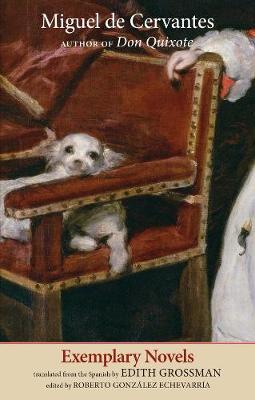The Margellos World Republic of Letters
1 total work
Edith Grossman, celebrated for her brilliant translation of Don Quixote, offers a dazzling new version of another Cervantes classic
“Compressed masterworks, containing great canvases and big ideas in just a few pages. . . . A pleasure.”—Kirkus Reviews
The twelve novellas gathered in Exemplary Novels reveal the extraordinary breadth of Cervantes’s imagination: his nearly limitless ability to create characters, invent plots, and entertain readers across continents and centuries. The assemblage of characters (eloquent witches, talking dogs, Gypsy orphans, and an array of others), the twisting plots, and the moral heart at the core of each short tale proved instantly irresistible to readers. Love is the overarching theme.
Now, as when it was published in Spain in 1613, the book brings readers pure entertainment, but also a subtle artistry that invites deeper investigation. Edith Grossman’s translation brings this timeless classic to English-language readers in an edition that will delight those already familiar with Cervantes’s work as well as those about to be enchanted for the first time. Roberto González Echevarría’s illuminating introduction to the volume serves as both an appreciation of Cervantes’s brilliance and a critical guide to the novellas and their significance.
“Compressed masterworks, containing great canvases and big ideas in just a few pages. . . . A pleasure.”—Kirkus Reviews
The twelve novellas gathered in Exemplary Novels reveal the extraordinary breadth of Cervantes’s imagination: his nearly limitless ability to create characters, invent plots, and entertain readers across continents and centuries. The assemblage of characters (eloquent witches, talking dogs, Gypsy orphans, and an array of others), the twisting plots, and the moral heart at the core of each short tale proved instantly irresistible to readers. Love is the overarching theme.
Now, as when it was published in Spain in 1613, the book brings readers pure entertainment, but also a subtle artistry that invites deeper investigation. Edith Grossman’s translation brings this timeless classic to English-language readers in an edition that will delight those already familiar with Cervantes’s work as well as those about to be enchanted for the first time. Roberto González Echevarría’s illuminating introduction to the volume serves as both an appreciation of Cervantes’s brilliance and a critical guide to the novellas and their significance.
